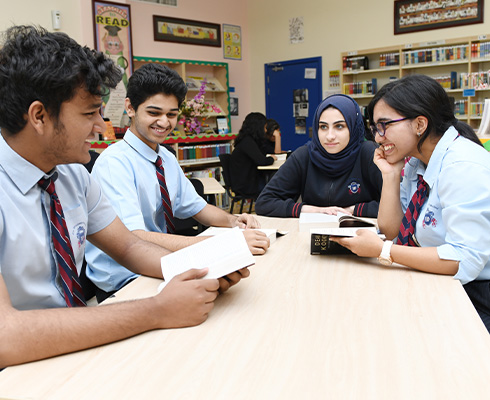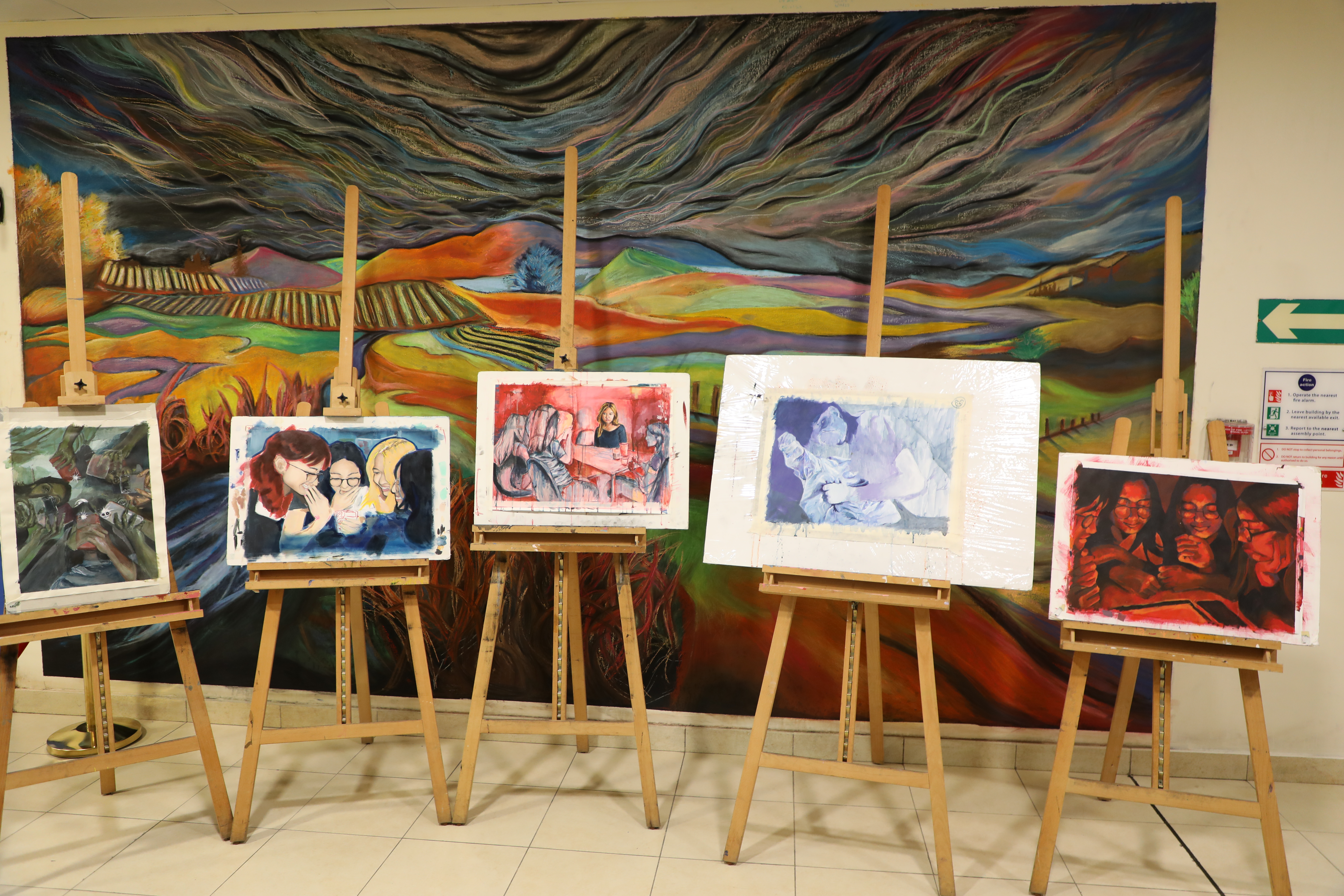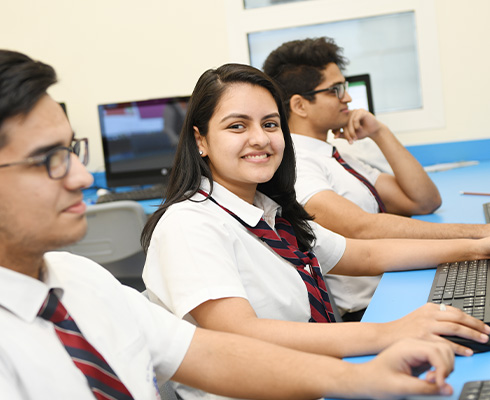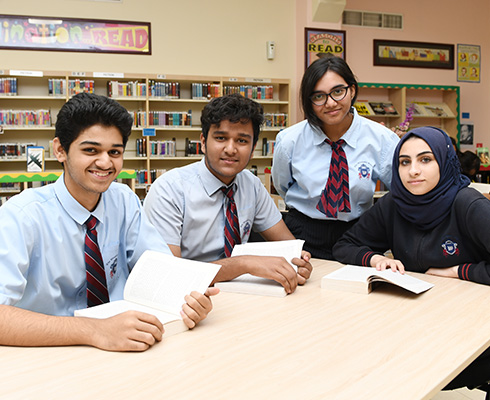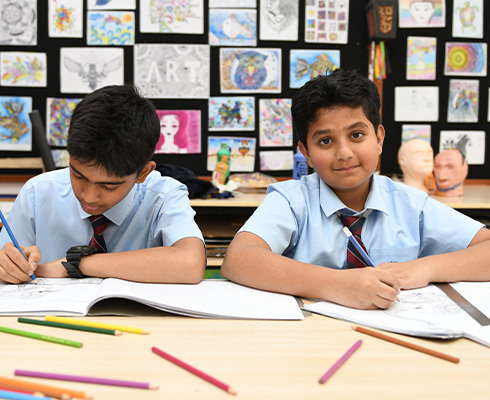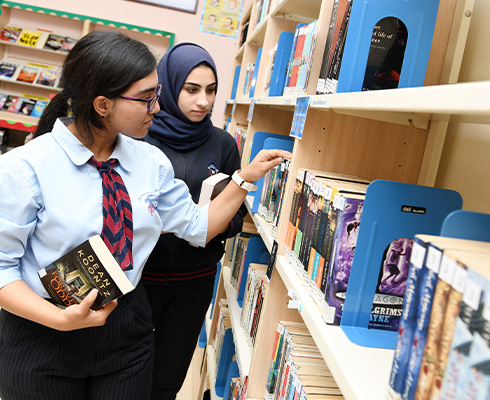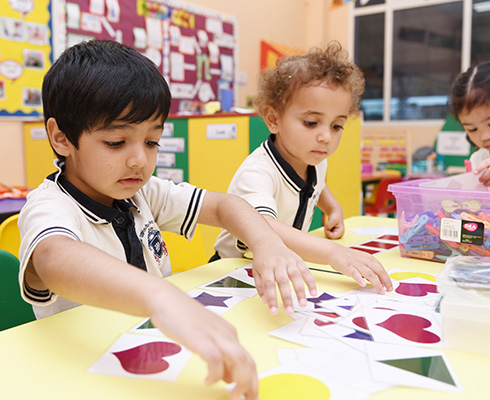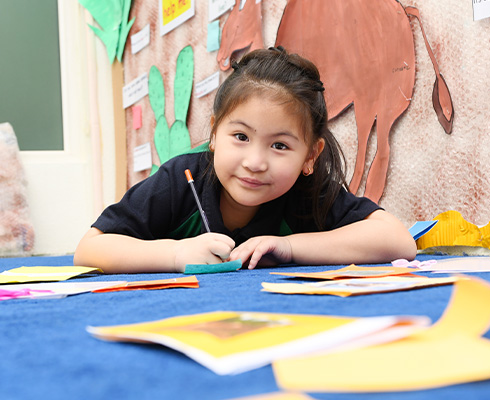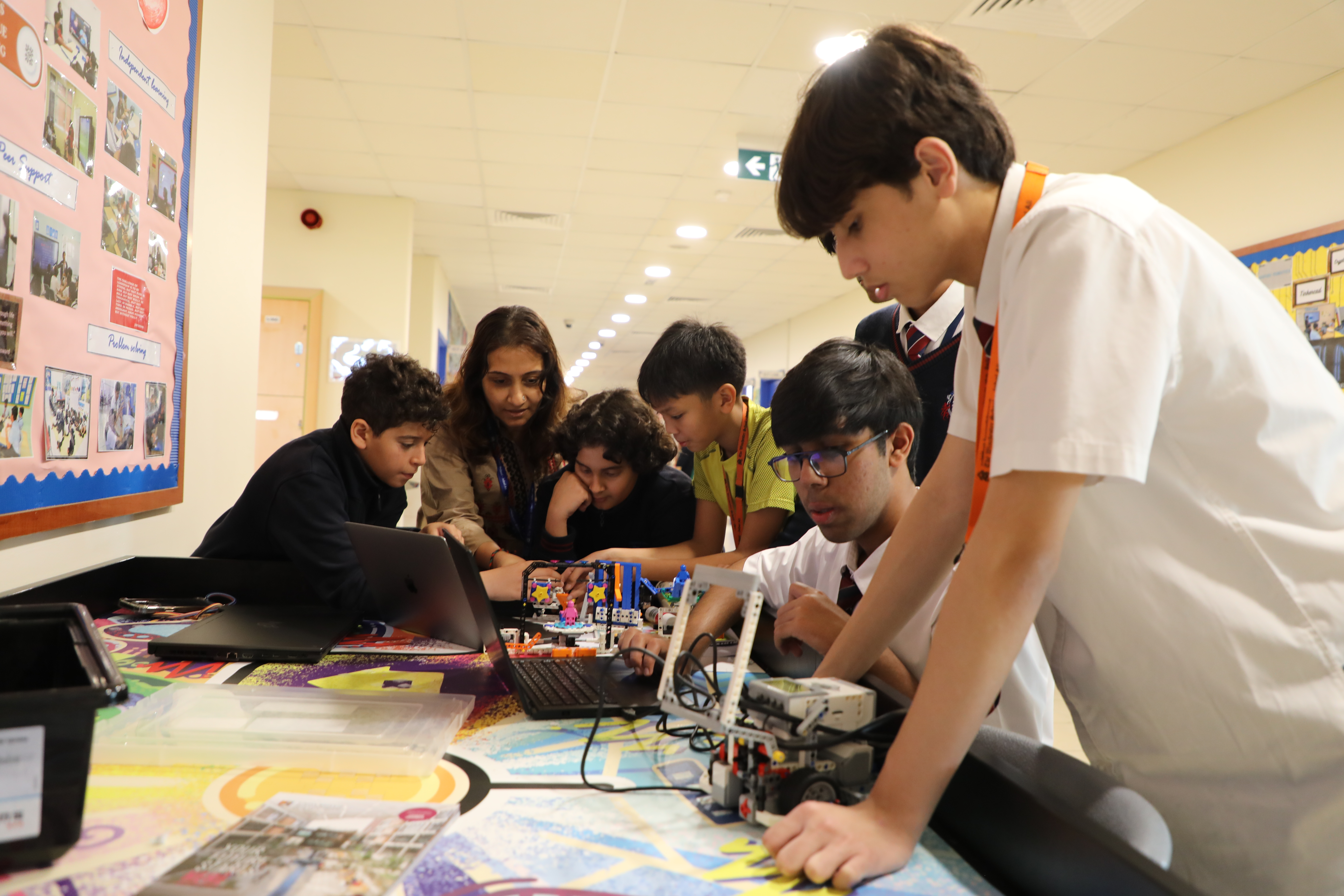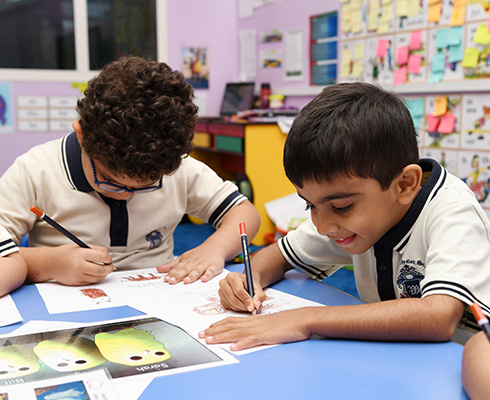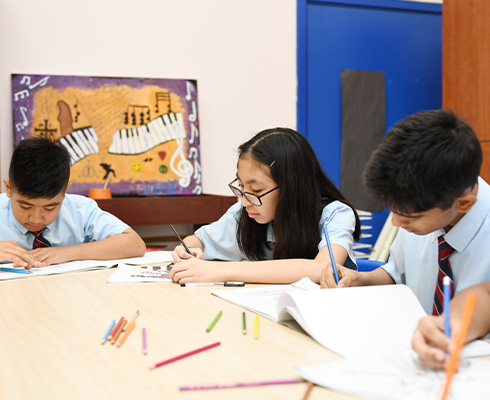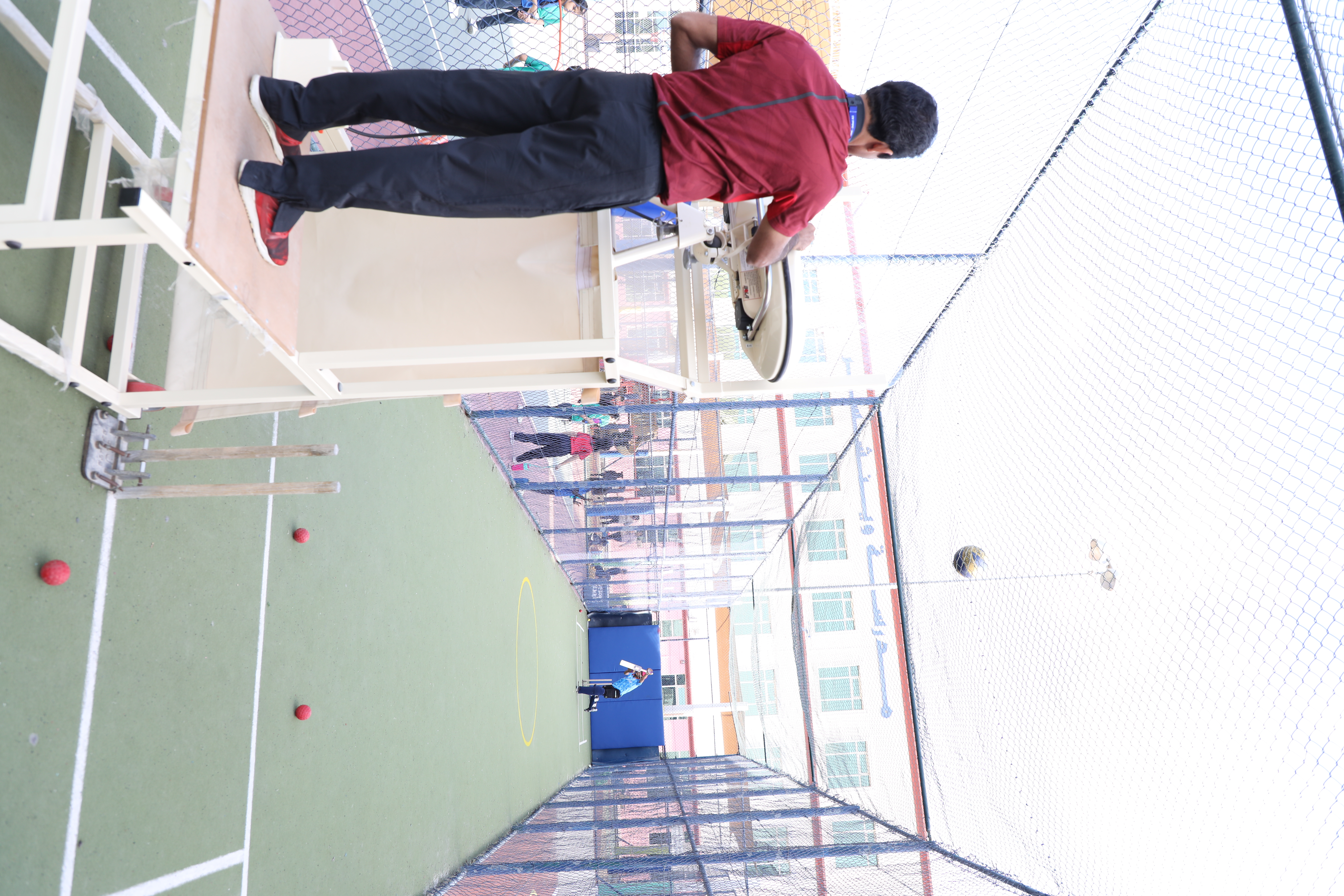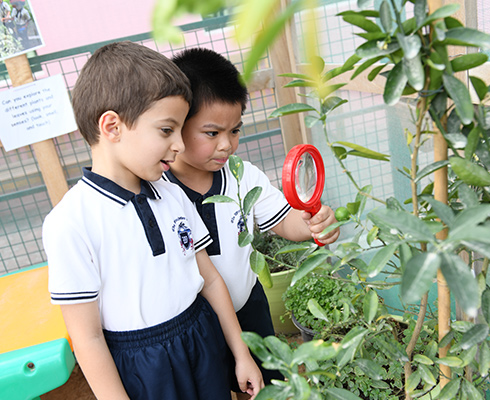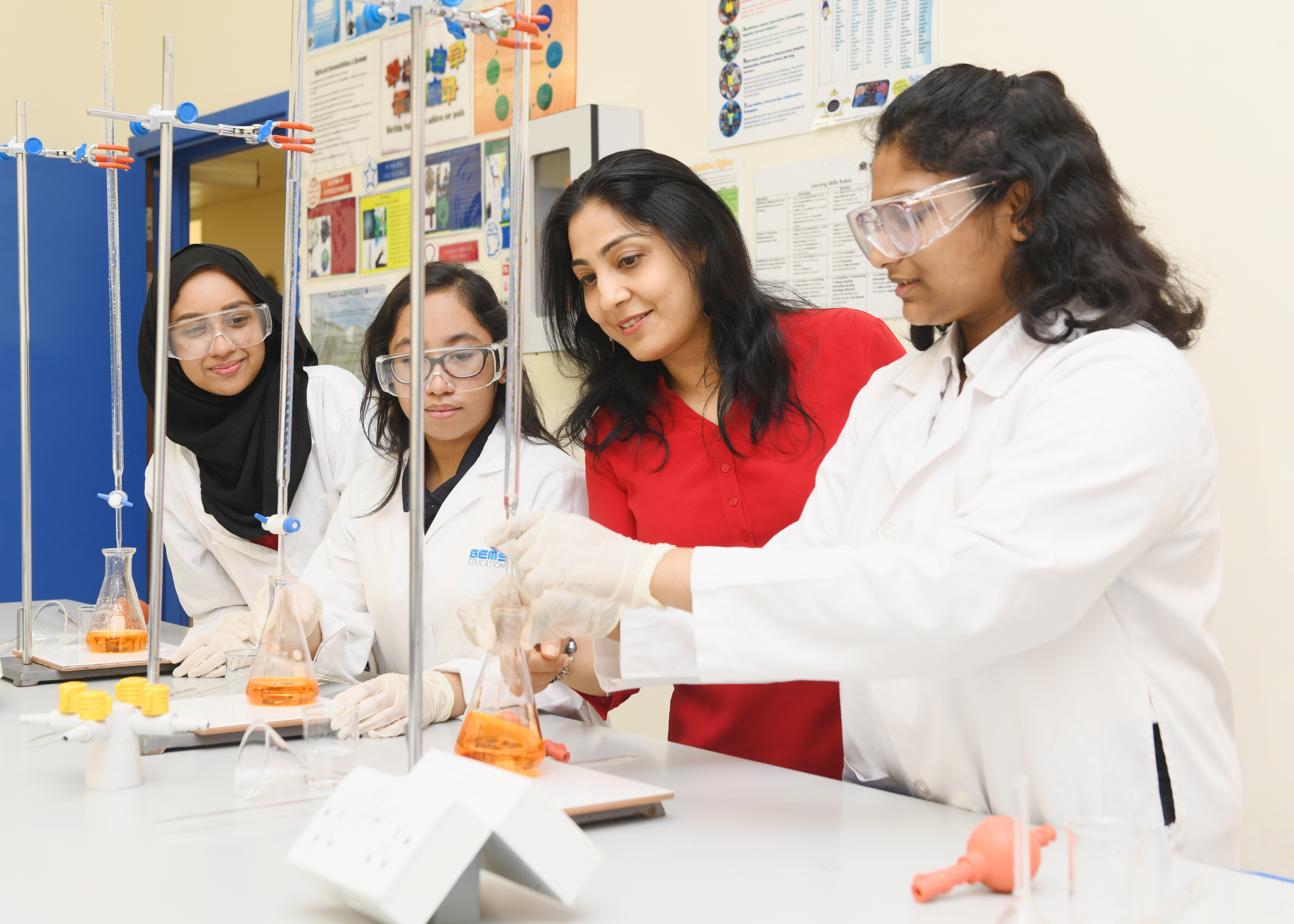
Science Department - Secondary
Learn more about our Science Department – Secondary
Head of Department: Ms. Aditi Kapoor
Email ID: [email protected]
Department Philosophy
To encourage students not only to go into Science related fields but also to emphasise leadership, teamwork, problem-solving and decision making by developing life skills using hands-on learning activities.
Department Facilities / Resources
- ICT resources
- Fully equipped labs for all key stages.
Key Points from Department Policy
- To stimulate a child’s curiosity in finding out why things happen in the way they do.
- To teach methods of enquiry and investigation to stimulate creative thought.
- Children learn to ask scientific questions and begin to appreciate the way in which science will affect the future on a personal, national, and global level.
- Children should develop the ability to:
- Ask and answer scientific questions, predict and hypothesise
- Observe, measure and manipulate variables
- Interpret results and evaluate evidence.
- Plan and carry out investigations, using equipment (including computers) correctly
- Test out ideas experimentally
- Develop practical skills
- Carry out investigative fieldwork
- Use collaborative approaches to solving problems
- Appreciate the importance of experimental evidence
- Know and understand the life processes of living things;
- Know and understand the physical processes of materials, electricity, light, sound, and natural forces;
- Know about the nature of the solar system, including the earth;
- Evaluate evidence, and present their conclusions clearly and accurately
Assessment Procedure
- Key Stage 3 – Formative Assessments forms an integral part of every lesson. Students are encouraged to use the National Curriculum level descriptors to assess their learning and set targets. We assess children's work formatively through individual/group projects, individual/group research, class discussions, debates, role plays, cross-curricular linking, linking UAE, making real life connections and effective questioning.
- A Summative Assessment is done at the end of term 1 and term 3. Based on the Summative and Formative assessments student’s level of attainment are identified, new targets are set and shared with the students and parents.
- 100% Written assessment for IGCSE, AS and A levels
- Practical & Project assessments to enhance their learning
- Interventions of IGCSE & A Levels after Mock 1
- Extra & Support theory and Practical lessons.
- IGCSE, AS, A level mock examinations and finals.
Extra-curricular Activities
- Science Field trips(US NASA SPACE CAMP was conducted in April 2011 and September 2012)
- Science field trips ( visits like KITKAT chocolate factory, Jebel Ali beverages etc. were conducted this year)
- Science Week (5-day programme in the form of Science Quiz, Experiments, Science assemblies which include the active participation of department members and student subject leaders.)
- Introducing Science Club for KS3 & Yr 10 students from September

